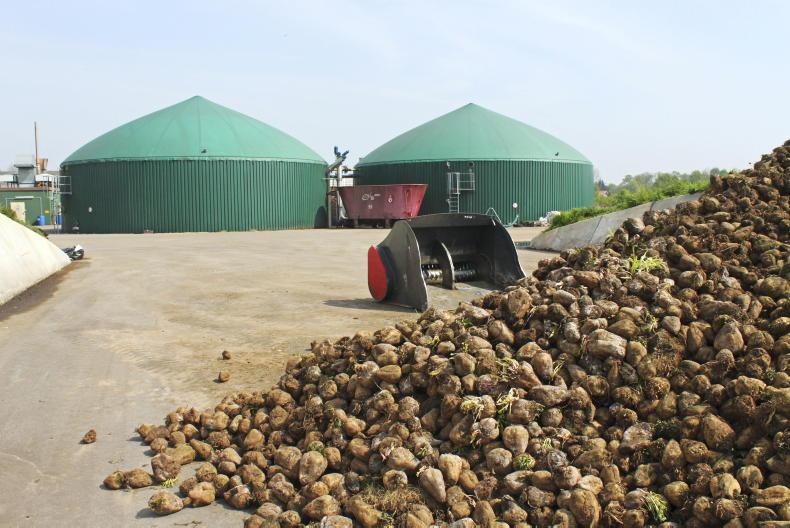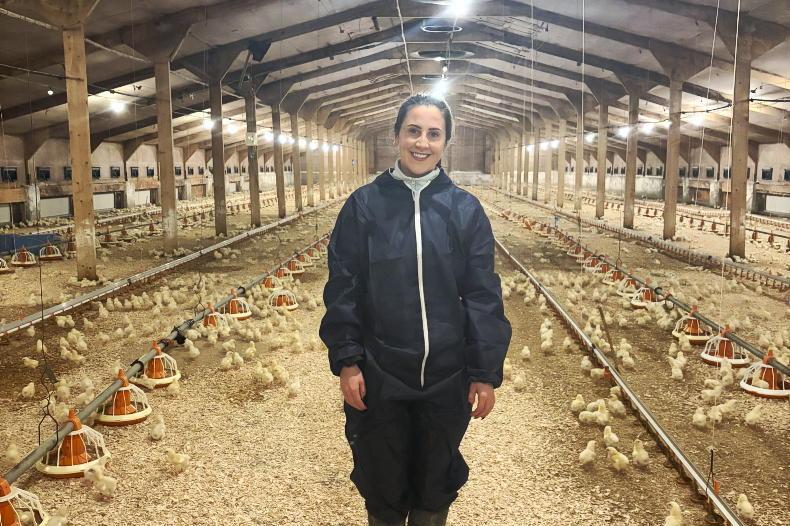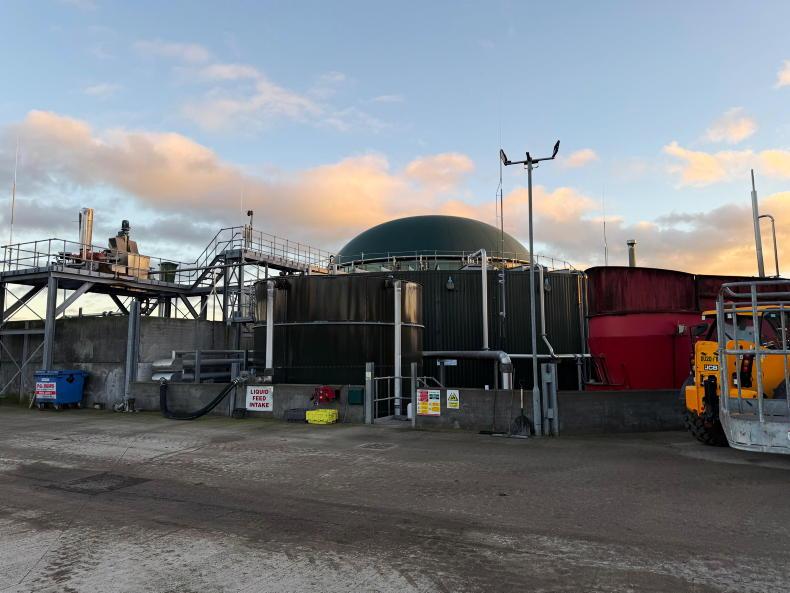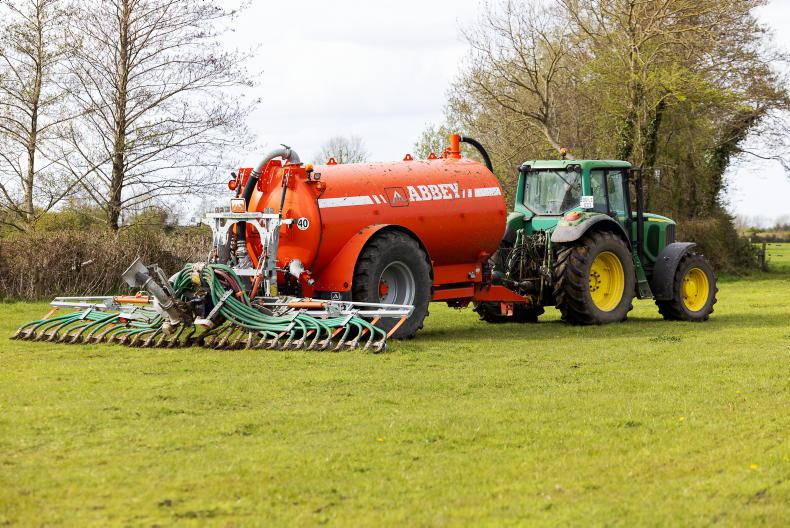The nitrates derogation is set to expire in April 2026 and Ireland must achieve a stabilisation of water quality before a new derogation can be approved.
While this is monitored by the EPA, the question for readers is: how do farmers and the industry prepare for the year after next, with or without derogation?
The previous sentiment expressed in the dairy sector was that leasing more land was the obvious economic decision if the derogation were changed or lost, but that confidence may have recently decreased.
Will adding more land parcels to an existing farm enterprise improve water quality?
The risk is that these land parcels will be outblocks, not immediately adjacent to the existing farm.
The increased area will dilute the overall stocking rate to make farms compliant with nitrates.
However, the concern is that the management of the milking platform could remain unchanged, at the original stocking rate, without reducing the risk of nitrogen leaching and the associated threat to water quality.
This will likely create more work for the dairy farmer in the long run and reduce the size or number of non-derogation farmers. Not exactly a win-win situation.
Exporting slurry is an alternative solution for reducing the threat to water quality.
Currently, that requires finding a farm stocked below 170kg organic nitrogen per hectare in which to export to.
However, what if there was an anaerobic digestion (AD) plant in the locality to make renewable biomethane from the slurry?
Using slurry to produce biomethane captures the methane that would otherwise be released into the atmosphere, which is a positive development in achieving agriculture’s decarbonisation goals.
Why then does the farming community not see exporting slurry to an AD plant as the future for agriculture?
The AD catch
The catch is that current legislation means derogation farms cannot import any organic nutrients above 170kg organic nitrogen per hectare.
This means the nutrients in the farm’s slurry cannot return to the same farm as digestate, as the regulations still classify the nutrients as organic manure.
Instead, chemical fertilisers would have to be purchased to maintain soil fertility and replace the slurry nutrients exported from the farm. This eliminates a core benefit of AD as a circular system, where nutrients are reused while reducing agricultural emissions.
Recovered nitrogen from manure (ReNure) is a proposed amendment to the Nitrates Directive that seeks to facilitate the reuse of organic nutrients in the form of processed digestate, provided certain conditions are met.
Farms would be allowed to import an additional 100kg N/ha of ReNure, ie processed digestate from an AD plant, as a replacement for chemical fertiliser.
This is in recognition of the circularity and sustainability of the use of organic nutrients, increasing food security and reducing farmers’ exposure to volatile mineral fertiliser prices.
Quantity
Detractors fear that a typical derogation dairy farm won’t be able to grow the same quantity of grass to feed their cows, as they will have exported nutrients in slurry which can’t be replaced.
This is not the case in my view, but each farm will be dictated by its Nutrient Management Plan as to how much ReNure digestate can be imported.

ReNure can be produced from AD plants.
Adopting ReNure should allow for improvements in the efficiency and timing of use of organic nutrients, particularly with the high nutrient availability of digestate compared to slurry.
How much of a crop the nutrients grow is ultimately also related to soil, plant and weather conditions.
Farms may require more storage to allow for efficient logistics. Ideally, the lorry that collects slurry would arrive with a load of digestate to be stored in a separate covered store.
The analysis of the Teagasc National Farm Survey shows that the average derogation dairy farm in 2022 would have to export between two and 2.5 lorry loads of slurry a week for between 11 and 24 weeks of the winter.
With a national average of 20 weeks’ housing, this seems within the realms of feasibility. Furthermore, if the farm installs the storage tank on an outblock, getting digestate delivered to the silage ground, rather than the grazing platform, would lead to more even distribution of organic nutrients on farms and eliminate current financial and time constraints of moving slurry.
ReNure is still only a draft proposal. While there are potential improvements to its scope that could improve the affordability of digestate processing, it has the potential to help achieve climate targets, improve water quality and reduce uncertainty over nitrates.
The publication of the National Biomethane Strategy has shown policy support for AD and refers to a farmer-centric approach.
The industry is awaiting financial support and the stimulation of a biomethane retail market with the renewable heat obligation, although the transport incentives already exist and the first biomethane tractors are operating in the country, albeit they only come in blue.
Is it time for farmers and their representatives to consider AD and ReNure before the horse has bolted?
Should farmers consider supplying slurry to a local AD plant rather than competing with their neighbours to rent land in a post-derogation scenario?
Shareholders
Could farmers and local industry take it a step further by becoming AD shareholders and co-operating to futureproof their farms, food production and the rural economy? Perhaps, or maybe this is just an ill-informed view.
Derogration farms cannot import digestate back into their farm. This calls the viability of exporting slurry to an AD plant into question. The ReNure proposal aims to address this issue.
Maurice Deasy.
The nitrates derogation is set to expire in April 2026 and Ireland must achieve a stabilisation of water quality before a new derogation can be approved.
While this is monitored by the EPA, the question for readers is: how do farmers and the industry prepare for the year after next, with or without derogation?
The previous sentiment expressed in the dairy sector was that leasing more land was the obvious economic decision if the derogation were changed or lost, but that confidence may have recently decreased.
Will adding more land parcels to an existing farm enterprise improve water quality?
The risk is that these land parcels will be outblocks, not immediately adjacent to the existing farm.
The increased area will dilute the overall stocking rate to make farms compliant with nitrates.
However, the concern is that the management of the milking platform could remain unchanged, at the original stocking rate, without reducing the risk of nitrogen leaching and the associated threat to water quality.
This will likely create more work for the dairy farmer in the long run and reduce the size or number of non-derogation farmers. Not exactly a win-win situation.
Exporting slurry is an alternative solution for reducing the threat to water quality.
Currently, that requires finding a farm stocked below 170kg organic nitrogen per hectare in which to export to.
However, what if there was an anaerobic digestion (AD) plant in the locality to make renewable biomethane from the slurry?
Using slurry to produce biomethane captures the methane that would otherwise be released into the atmosphere, which is a positive development in achieving agriculture’s decarbonisation goals.
Why then does the farming community not see exporting slurry to an AD plant as the future for agriculture?
The AD catch
The catch is that current legislation means derogation farms cannot import any organic nutrients above 170kg organic nitrogen per hectare.
This means the nutrients in the farm’s slurry cannot return to the same farm as digestate, as the regulations still classify the nutrients as organic manure.
Instead, chemical fertilisers would have to be purchased to maintain soil fertility and replace the slurry nutrients exported from the farm. This eliminates a core benefit of AD as a circular system, where nutrients are reused while reducing agricultural emissions.
Recovered nitrogen from manure (ReNure) is a proposed amendment to the Nitrates Directive that seeks to facilitate the reuse of organic nutrients in the form of processed digestate, provided certain conditions are met.
Farms would be allowed to import an additional 100kg N/ha of ReNure, ie processed digestate from an AD plant, as a replacement for chemical fertiliser.
This is in recognition of the circularity and sustainability of the use of organic nutrients, increasing food security and reducing farmers’ exposure to volatile mineral fertiliser prices.
Quantity
Detractors fear that a typical derogation dairy farm won’t be able to grow the same quantity of grass to feed their cows, as they will have exported nutrients in slurry which can’t be replaced.
This is not the case in my view, but each farm will be dictated by its Nutrient Management Plan as to how much ReNure digestate can be imported.

ReNure can be produced from AD plants.
Adopting ReNure should allow for improvements in the efficiency and timing of use of organic nutrients, particularly with the high nutrient availability of digestate compared to slurry.
How much of a crop the nutrients grow is ultimately also related to soil, plant and weather conditions.
Farms may require more storage to allow for efficient logistics. Ideally, the lorry that collects slurry would arrive with a load of digestate to be stored in a separate covered store.
The analysis of the Teagasc National Farm Survey shows that the average derogation dairy farm in 2022 would have to export between two and 2.5 lorry loads of slurry a week for between 11 and 24 weeks of the winter.
With a national average of 20 weeks’ housing, this seems within the realms of feasibility. Furthermore, if the farm installs the storage tank on an outblock, getting digestate delivered to the silage ground, rather than the grazing platform, would lead to more even distribution of organic nutrients on farms and eliminate current financial and time constraints of moving slurry.
ReNure is still only a draft proposal. While there are potential improvements to its scope that could improve the affordability of digestate processing, it has the potential to help achieve climate targets, improve water quality and reduce uncertainty over nitrates.
The publication of the National Biomethane Strategy has shown policy support for AD and refers to a farmer-centric approach.
The industry is awaiting financial support and the stimulation of a biomethane retail market with the renewable heat obligation, although the transport incentives already exist and the first biomethane tractors are operating in the country, albeit they only come in blue.
Is it time for farmers and their representatives to consider AD and ReNure before the horse has bolted?
Should farmers consider supplying slurry to a local AD plant rather than competing with their neighbours to rent land in a post-derogation scenario?
Shareholders
Could farmers and local industry take it a step further by becoming AD shareholders and co-operating to futureproof their farms, food production and the rural economy? Perhaps, or maybe this is just an ill-informed view.
Derogration farms cannot import digestate back into their farm. This calls the viability of exporting slurry to an AD plant into question. The ReNure proposal aims to address this issue.
Maurice Deasy.











SHARING OPTIONS